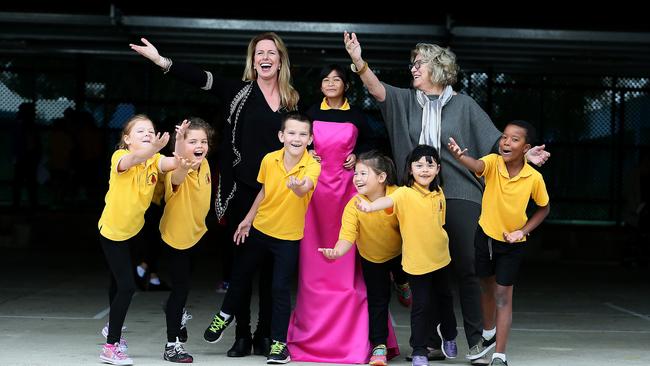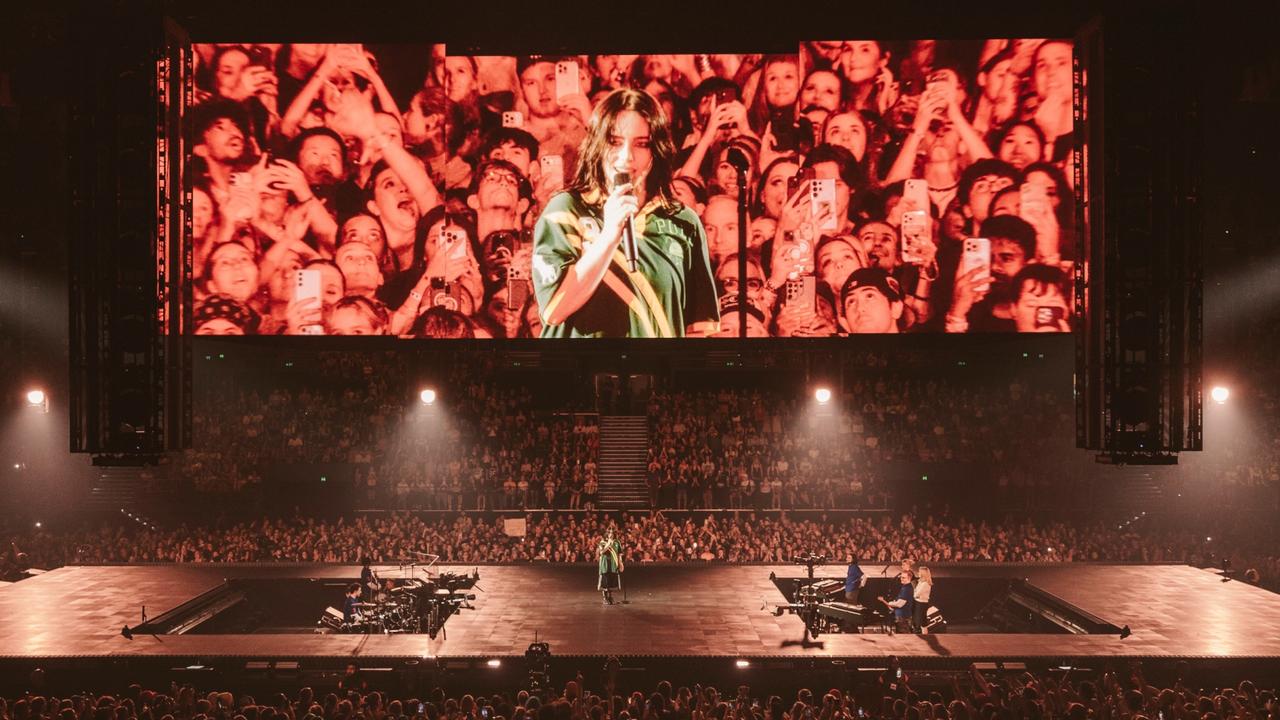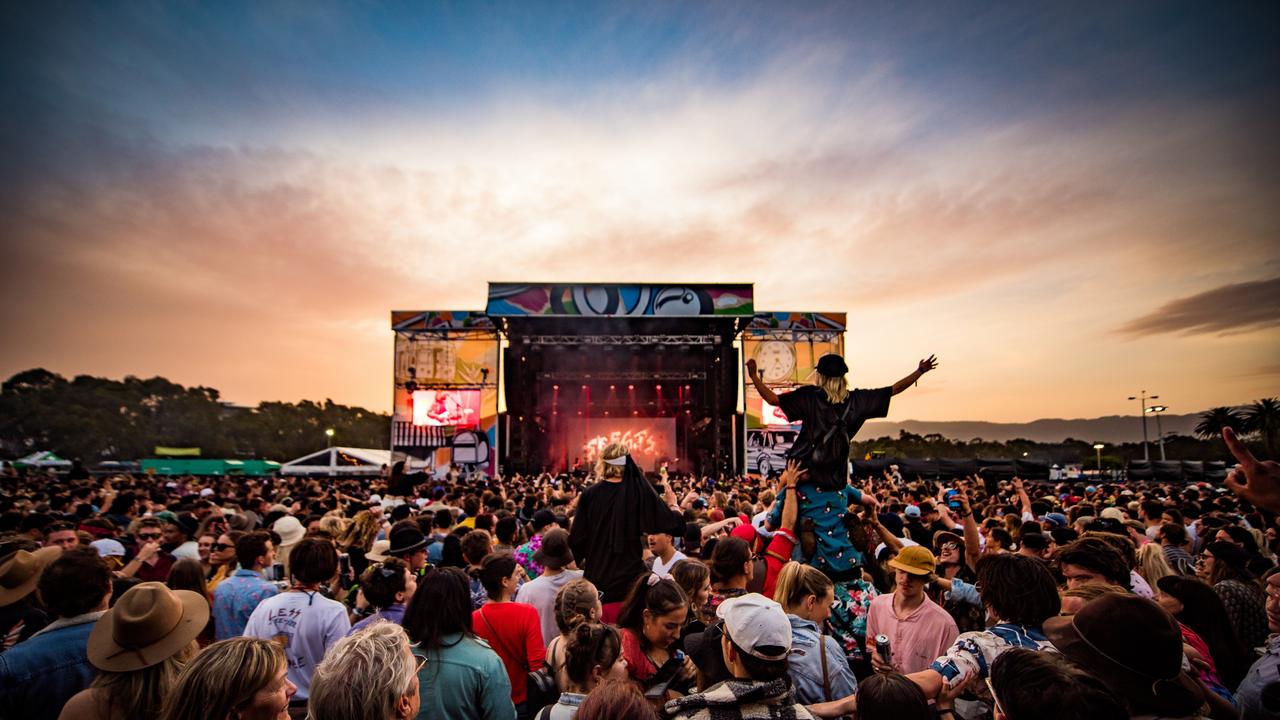WA State Orchestra program inspires schoolchildren to make music
WASO is committed to giving a free musical education to 450 pupils at North Parmelia and Medina primary schools.

There are many paths to a musical career and for one small boy in a disadvantaged outer suburb of Perth, it begins with a burger bun and a $250,000 music program run by the West Australian Symphony Orchestra.
“He’s a funny boy whose favourite food is a fast-food hamburger,” explains Cassandra Lake, a trained musician who runs WASO’s community engagement program. “So he interpreted his ‘do re mi’ singing chart as a burger bun, with each note representing the lettuce, then the beef patty, the bacon, the mayonnaise and the bun on the top,” says Lake, demonstrating the hand cues that each child makes as they sing their way up the scale. “We’re working our way towards him thinking ‘do re mi’.”
Lake is the driving force behind WASO’s commitment to a free musical education for the boy and his 300 fellow pupils at North Parmelia Primary School — as well as another 150 children at nearby Medina Primary School.
The schools are located in the industrial belt of Kwinana, an hour’s drive south of Perth, where unemployment levels are as high as the community’s welfare needs.
According to North Parmelia principal Peter Elsegood, most of his students are educationally “at risk”.
“Around two thirds of our students are eligible for extra funding for one disadvantage or another,” Elsegood says. “So I was stunned when WASO came to us two years ago and offered this program for every child.”
Called Crescendo, the WASO initiative was inspired by one of the world’s celebrated musical educators. In 1975, Venezuelan educator, musician and activist Jose Antonio Abreu set up the El Sistema program of teaching musical instruments to children in his country’s shanty towns and slums. It led Abreu — whose motto is Social Action for Music — to found the Simon Bolivar Youth Orchestra, which has toured the world. Meanwhile, El Sistema has inspired similar initiatives in more than 40 countries.
“It began with 20 children in the garage of a social activist,” Lake says. “Now every child in Venezuela has a chance to be involved in an El Sistema music program. It’s group-based, it’s holistic and it’s free.”
WASO’s motto for Crescendo is to “touch souls and enrich lives through music” and it is funded largely from donor supporters, including WASO board chairwoman Janet Holmes a Court.
The long-term goal is to beg, buy or borrow enough instruments so that every child in each school can be offered one to learn by 2020.
Co-ordinator Lake says she structured the program to start with voice training for the first two years; musical instrument tuition will begin later this year.
“We wanted to encourage the kids to use their in-built vocal abilities, so we started as a vocal program,” she says. “Our lessons are carefully structured, working with beats and rhythms. This is not about the kids achieving any particular grade; it’s about them participating.
“We find we can also help with speech development by doing vocalisation and making them stretch their mouths in funny ways. It’s about pairing with each other, giving everything a go, enjoying performing and developing fine motor skills.”
Weekly singing lessons are led by accomplished visiting artists like mezzosoprano Fiona Campbell, who fits the nearly 100km round trip to Kwinana into a crowded international recital schedule and opera roles.
“It’s the most worthwhile thing you can do to contribute to people’s lives in a positive way,” explains Campbell, after sitting in a circle with children and taking them through a series of vocal exercises. “It’s not just about notes on a page, and the effect in a single school term is quite profound.”
Sonya Richardson, whose seven-year-old daughter Amy sits in the circle, says her daughter loves the music sessions. “She’s got confidence out of it — she’s now playing banjo at home and we got her a karaoke machine.”
Lake says: “I’ve had wonderful conversations with the parents talking about their child singing at home, and them not understanding why. They come along to a class and realise that’s why they are so happy.”
Last week a classical string quartet visited the school, and next month the pupils will travel to the Perth Concert Hall to hear Peter and the Wolf played by the 84-member symphony orchestra.
WASO chief executive Craig Whitehead says he has a strong personal affinity with Crescendo; his own career in the arts began with a rare musical visit to his Queensland country school. “I came from a non-arts family. I was in Year 2 when a music troupe came to my school and I didn’t know what it was. I thought, ‘I want to do that.’
“About five years ago, within the board of management, we decided we wanted to become much more relevant to our community. We’re the state’s orchestra, not the Perth Concert Hall orchestra, and we want to give children access to our orchestra.”
Two years ago, Lake was sent to Melbourne to observe Australia’s only other El Sistema-inspired musical program. Between 2009 and 2015, the Melbourne Symphony Orchestra partnered with Meadows Primary School in Broadmeadows to deliver The Pizzicato Effect, a free program for children to learn to play violins, violas and cellos in ensemble settings, and participate in singing sessions. This year, it has moved to an after-school program, engaging 70 children aged eight to 13 years from about 20 local schools.
Lake says she felt inspired by the opportunity it offered to children who lacked access to musical instruction. “I was fortunate; my parents were always taking me to concerts. I studied music and I played flute, learning from WASO’s principal flautist. My husband is the WASO timpanist and music is a big part of our children’s lives.”
She says WASO has a lifelong commitment to the program. “It’s a big commitment but I hope this will last in this community as it has in Venezuela,” she says.
Whitehead echoes the sentiment, and says the orchestra’s sound financial position underpins its community activities. “We’re the only Australian orchestra that has had seven successive operating surpluses.”
WASO has a busy year of concerts under Israeli-born principal conductor Asher Fisch. In October Fisch will lead the orchestra on its first international tour in 10 years, after an invitation to perform at the Beijing Music Festival.
“But we also have the deepest and broadest community education program of any orchestra in the country,” says Whitehead. “We’ve got a hospital program eight times a year, including ward visits for seriously ill children; we’ve got a Harmony Music program for children at four special schools for severe intellectual and physical disabilities; and we run classes in the northwest town of Onslow for remote children, with support through Chevron.”
WASO is now on the lookout for sufficient instruments to take Crescendo to the next phase. “If anyone has a violin stuck at the back of their cupboard,” says Whitehead, “we’d love them to take it out and donate it to us.”


